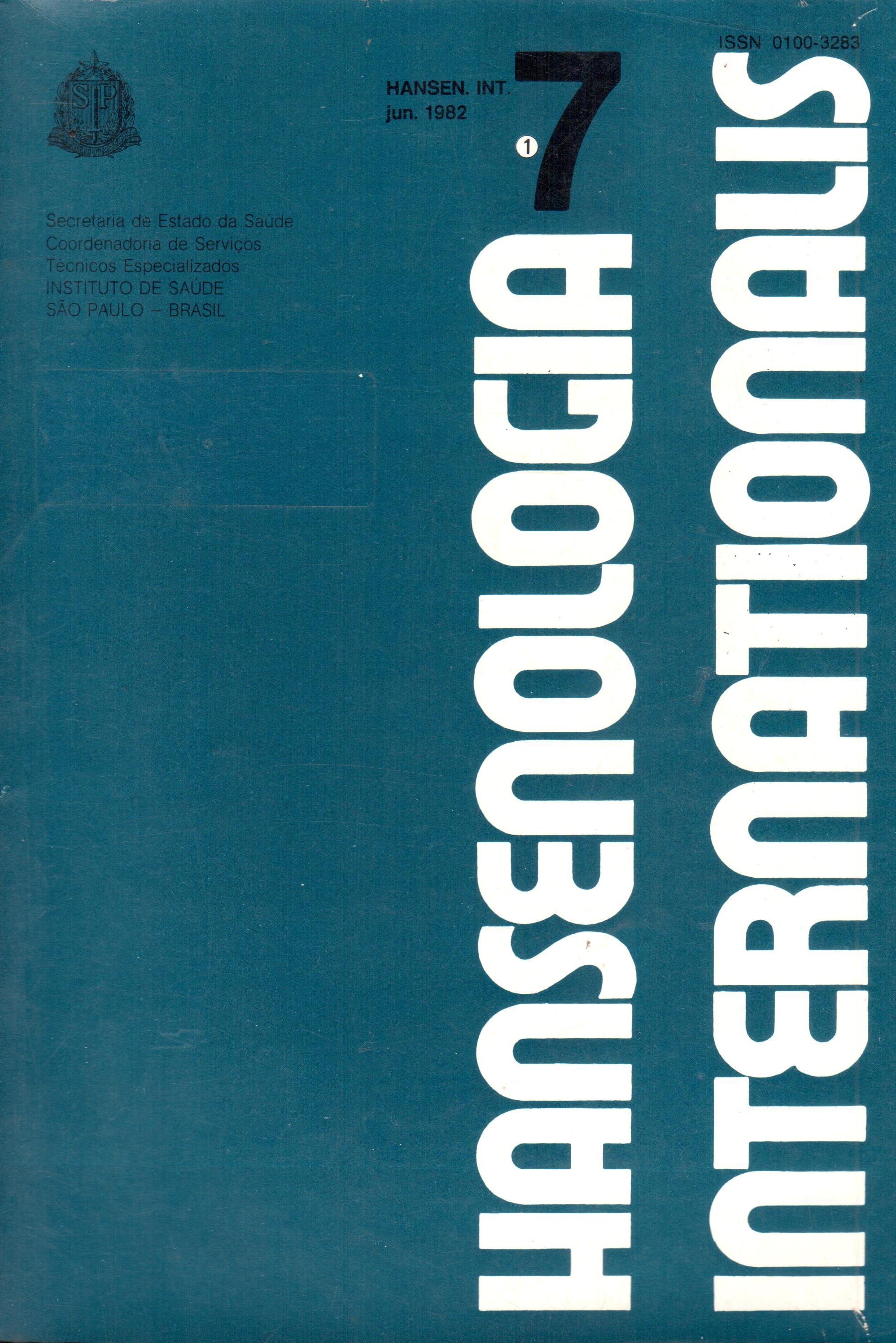Abstract
The association of mast cells and lepra bacilli was studied in the foot pad skin of immunosuppressed mice inoculated with 105 lepra bacilli. The mice were killed at intervals varying from 2½ — 14 months postinoculation. M. leprae are found in large numbers in nerves, blood vessels, muscle fibres, hair follicles, sweat and sebaceous glands. Mastocytosis and extensive degranulation are seen at similar sites. Since these are the structures most affected in leprosy where the lepra bacilli and degranulating mast cells accumulate, there appears a close relationship between the two. This could be due to the composite role of mast cells in host tissue response and mastocytosis and degra-nulation may be related to this.
References
2 CAZAL, P. Mastocytose médullaire e taplasie. Rev. Beige Path, 24:107-111, 1955.
3 COMBS, J.W. An electron microscope study of mouse mast cells arising in vivo and in vitro. J. Cell Biol., 48:676-684, 1971.
4 DASTUR, D.K. The motor unit in leprous neuritis: a clinico-pathological study. Neurology, Bombay, 4:1-27, 1956.
5 EHRLICH, P. Beitrage zur Kenntnis der Anilinfarbungen and ihrer Verwendung in der mikroskopischen Technik. Arch. Anat. Physiol., 3:166, 1877.
6 FAN, J. The effects of p' on the mast cells in the skin rats. J. Invest. Derm., 30(4) :167-171, 1958.
7 GINSBURG, H. & LAGUNOFF, D. The in vitro differentiation of mast cells. Cultures of cells from immunized mouse lymph nodes and thoracic duct lymph on fibroblast monolayers. J. Cell Biol., .95:685-697, 1967.
8 ISHIZAKA, T.H.; ADACHI, T.; CHANG, T.S.; ISHIZAKA, K. Development of mast cells in vitro. II. Biologic function of cultured mast cells. J. Immunol., 118(1) :211-217, 1977.
9 ISHIZAKA, T.H.; OKUDAIRA, L.; MOUSER, L.; ISHIZAKA, K Development of rat mast cells in vitro. I. Differentiation of mast cells
from thymus cells. J. Immunol., 116: 747-754, 1976.
10 KATO, K. & GOZSY, B. Mast cell response in murine leprosy. Int. J. Lepr., 33(1) :50-60, 1965.
11 KHANOLKAR, V.R. Studies in the histology of early lesions in leprosy. New Delhi, Indian Council of Medical Research, 1951. 18p.
(Special Report Series, 19)
12 KOTTEESWARAN, G.; CHACKO, C.J. G.; JOB, C.K. Skin adnexa in leprosy and their role in the dissemination of M. leprae. Lepr. India,
52(4) :475-481, 1980.
13 KUMAR, R. & VAIDYA, M.C. Mast cells in mouse. J. Anat. Soc. India, 22:86, 1972.
14 KUMAR, R.; VAIDYA, M.C.; KESH - WANI, N.H. In vivo response of mast cells to lepromatous serum. Lepr. India, 51(1) :49-53, 1979.
15 LUMSDEN, C.E. Leprosy and Schwann cell in vivo and in vitro. In: COCHRANE, R.G. & DAVEY, T.F„ eds. Leprosy in theory and practice.. 2.ed. Bristol, John Wright, 1964. cap.13, p.221-250.
16 MARIE, S.S. & NOEL, R.R. Granuloma of tuberculoid leprosy contains numerous eosinophils and mast cells. Bull. Histol. Techn. Micr., 25:5, 1948.
17 REES, R.J.W. Enhanced susceptibility of thymectomized and irradiated mice to infection with Mycobacterium leprae. Nature, 211(5049) :657-658, 1966.
18 SELYE, H. The mast cell. Washington, Butterworth, 1965.
19 SENGUPTA, P.C. & GHOSH, S. Tissue mast cells. Nature, 197:506-507, 1963.
This journal is licensed under a Creative Commons Attribution 4.0 International License.
